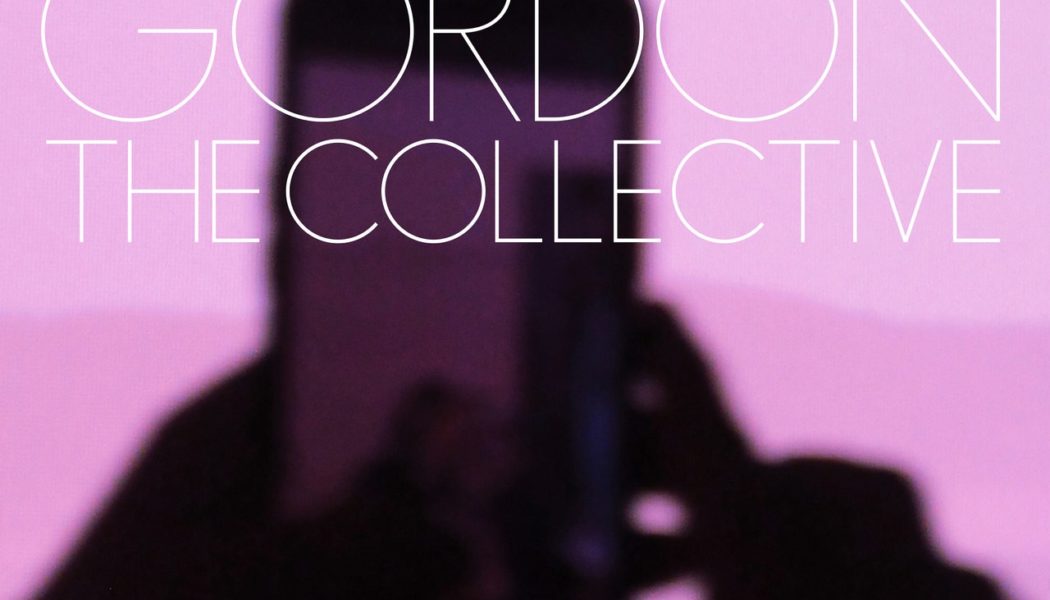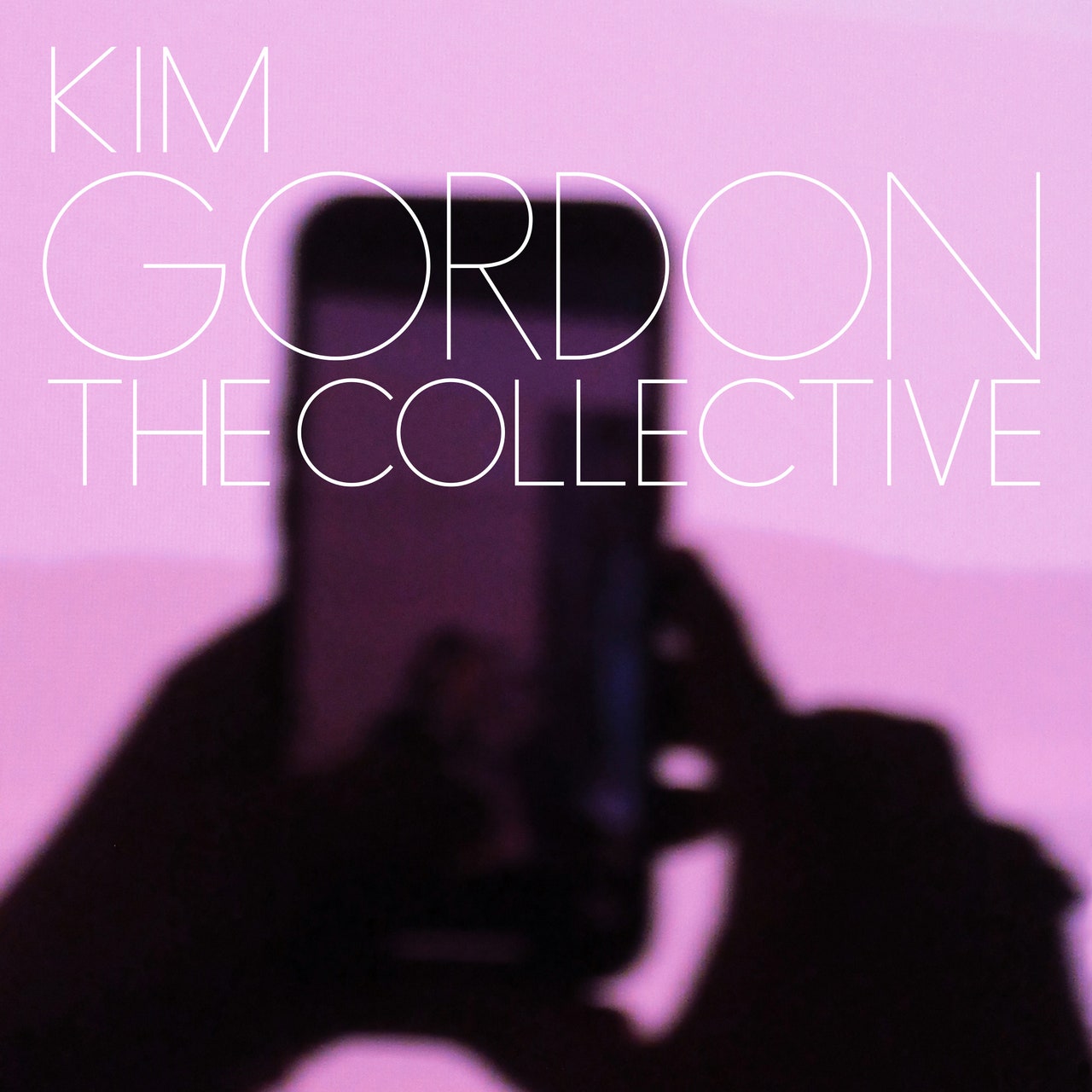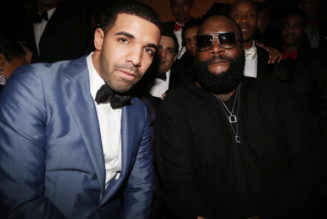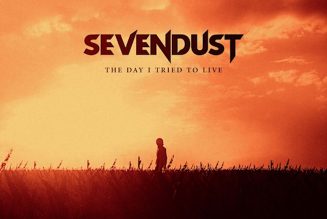Kim Gordon, like everyone, is addicted to her phone. Her vicious and brilliant second solo album, The Collective, shares its name with a painting she exhibited at New York’s 303 Gallery last year; 27 iPhone-sized holes had been punched out the canvas, each gap a cute little reminder of every synapse you’ve fried watching parkour clips or chasing the infinite scroll. The album itself is even less subtle: Powered by ear-splitting trap beats and churning industrial guitar, anchored by lyrics in which Gordon recites packing lists or mutters about driving in Los Angeles, The Collective is a maelstrom of mundane thoughts and funny asides and flashes of pure rage whipped into a heavy, unnerving fog. It sounds how TikTok brain feels.
It’s a provocative but fitting new mode for Gordon, who, for over 40 years, has intermingled caustic experimental art with a mordant curiosity about mainstream culture. For every obtusely confrontational side project like Free Kitten, there is a Ciccone Youth, the Sonic Youth alter-ego dedicated to reinterpreting radio confections like “Into the Groove” and “Addicted to Love.” She holds down Body/Head, an elliptical guitar drone project with Bill Nace, yet also serenaded Rufus Humphrey and Lily van der Woodsen at their wedding on Gossip Girl. On The Collective, she lays her trademark breathy sprechgesang over what can only be described as Ken Carson-type beats, diving fully into the trap experiments she first tried on 2019’s No Home Record; sometimes, as on opening track “BYE BYE,” she genuinely sounds like a SoundCloud rapper, nonchalantly distending the names of luxury clothing brands: “Bella Freud, Y-S-L, Eck-haus-Lat-ta.”
No Home Record, Gordon’s first solo album after making music in bands for 38 years, was thematically oblique, but on songs like “Earthquake” and “Murdered Out,” her stoic visage slipped, revealing lyrics that sounded like stinging, unapologetic rebukes to a persona non grata in Gordon’s life. The Collective, made once again with alt-pop producer Justin Raisen (Sky Ferreira, Charli XCX), puts aside the score-settling in favor of fractured, stream-of-consciousness lyrics that mostly eschew poetry or diarism. The unrelentingly noisy vibe is appealingly impulsive and lizard-brained, like you’re hearing someone remind themself to form thoughts: She mumbles about buying overpriced potatoes and leaving out money for the cleaner, stretches the phrase “bowling trophies” into the album’s closest approximation of a melody, and wails something that sounds like a religious prophecy on “The Believers.” While recording, Raisen encouraged Gordon to bring her “abstract poetry shit,” and the resulting album feels simultaneously dense and invigorating; on “I Don’t Miss My Mind,” asides about home furnishings brush up against a goblin-voiced call to “suck it up/fuck it up” and a hazy memory of “crying in the subway.” There’s no lyric sheet, and many songs feel like Rorschach tests asking whether you hear resilience or brokenness, sex or violence, mundanity or surrealism. Often, it’s hard to tell the difference.
Despite the album’s almost dreamlike glaze, it’s easy to discern themes that have interested Gordon for the entirety of her career. Her fascination with the performance of masculinity, which she wrote about in the early ’80s, recurs on the blistering, formless “I’m a Man,” where she puffs out her chest like a drag king and adopts the pose of a slimy playboy: “So what if I like the big truck?/Giddy up, giddy up/Don’t call me toxic/Just cause I like your butt!” “BYE BYE” and “Psychedelic Orgasm,” both essentially interior monologues of someone going about their day, feel only a few steps removed from Design Office, her long-running art project exploring the links between architecture, real estate, domestic life, and fine art. On The Collective, she presents these ideas at their most stretched-out and free-associative—like they’re being read from a note that she typed at 3 a.m.
Some fragments of The Collective sound remarkably current. Raisen’s influence was clear on No Home Record, but here it sounds as if he and Gordon are actively trying to place their work in conversation with pop music more broadly. Toward the end of “The Candy House,” a lo-fi trap-pop track that grinds like heavy machinery, Raisen contorts Gordon’s voice into a garbled, formant-shifted knot that recalls the demonic asides of FKA twigs’ M3LL155X; on “It’s Dark Inside,” she shouts out Pussy Riot and her old collaborator Julie Cafritz’s band Pussy Galore, before caddishly chanting “Pussy pussy pussy!” like Kendrick Lamar on “Doves in the Wind.” There are wounded Auto-Tune trills on “Trophies” that feel drawn from the work of Farrah Abraham or Pop 2-era Charli. None of these moments are given much room to breathe—by the time Gordon introduces one idea, musical or thematic, she’s moved on to the next.
Gordon has said that she was initially introduced to social media by a friend who said it would help her “feel less alone”—an idea that, at this point, feels woefully naive. The Collective, at its most alienated, is hauntingly lonely and solipsistic, to the point that the faltering industrial dirge “Shelf Warmer” ostensibly begins as a come-on but quickly veers into musings on a gift receipt and then into outright conflict (“That’s what you want/That’s not what I want”). The song calls into question the ways our desires have been reshaped by digital dopamine triggers: Is it really sex you’re looking for? Or will any quick hit of interaction, positive or negative, do just fine? If records by 100 gecs and PinkPantheress reflect the feeling of being online in the 2020s, the cacophonous, vexing, endlessly fascinating The Collective represents the experience of logging off and finding that your perception of the real world has been forever altered. Few are better equipped than Gordon—who, at 70, is still cooler, smarter, and more fearless than most—to guide us through.
All products featured on Pitchfork are independently selected by our editors. However, when you buy something through our retail links, we may earn an affiliate commission.










